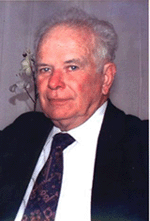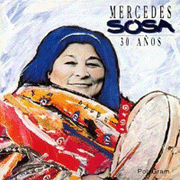"During the 20th century, we have in Argentina more governments elected by bullets than by ballots," Argentine investigative journalist Horacio Verbitsky said in an interview. He was referring in part to The Dirty War, a military dictatorship which shaped much of the country’s current political and social climate. The Dirty War refers to the state violence carried out by the military junta led by Jorge Videla from 1976-1983. At the start of the crackdown, one of the generals in the junta predicted, "We are going to have to kill 50,000 people: 25,000 subversives, 20,000 sympathizers, and we will make 5,000 mistakes." In the end, approximately 30,000 people were "disappeared."

Verbitsky has dedicated his life to uncovering crimes of the military dictatorship and bringing those responsible to justice. In his book Confessions of an Argentine Dirty Warrior, Lieutenant Commander Adolfo Scilingo confesses to participating in the torture and murder of political prisoners during the Dirty War. These activities included "death flights" – drugging prisoners and then throwing them, alive, out of airplanes into the ocean. In other cases, torturers put live mice into a woman’s vagina, pulled toe-nails off their victims and used cattle prods on prisoners.
This past still haunts much of the country. People I talked with during a recent visit to Argentina spoke of high school teachers in the 1970s and 1980s reporting to the government about unruly students and relatives hiding leftist literature in backyard gardens. Others had parents that disappeared and were never heard from again. Yet some people were hopeful. One friend explained at a party, "After the nightmares of the dictatorship, the neoliberal hell of the 1990s with Carlos Menem, [current president] Kirchner is okay."

This legacy of terror has in fact continued throughout the Kirchner administration. Journalist Marie Trigona writes that Julio Lopez, a political prisoner during the Dirty War, was disappeared in 2006 a few hours before he was scheduled to testify against former police investigator Miguel Etchecolatz, who ran a detention center during the dictatorship and oversaw torture. Lopez was last seen on September 18th, 2006. Trigona reported that Nilda Eloy, another survivor of the dictatorship who testified with Lopez to convict Etchecolatz, said that "Most of the evidence suggests that Julio Lopez was kidnapped by the gangsters from the Greater Buenos Aires police force and rightwing fascists…" Torture survivor Margarita Cruz said "Lopez’s disappearance brings back memories of our kidnappings and what we lived through during the military dictatorship."
Of War and Music: Latin America to the US
 We drove into the countryside outside Mendoza, Argentina to an isolated town past countless vineyards. A comet descended in the distance. Trees lined the road, their canopies filtering a view of the stars, which were bright in a dark sky. After receiving three different versions of directions to the same place, we arrived at the site of the concert. Mercedes Sosa, a long time Argentine folk singer, was performing. Sosa drew a diverse crowd including teenagers, older folks singing along to the lyrics and some babies held by their parents. Sosa was exiled during the dictatorship, and lived in the home of Ramon Chao (Manu’s father) in Paris, along with other exiled musicians such as Atahualpa Yupanqui. Though she has been less political since her early days, her singing continues to reach across political and generational lines. Her heroic voice conveys the vast artistic and geographic territory of her homeland. Hearing this country in her songs is a powerful and heart-wrenching experience. She cried throughout most of the performance, along with much of the audience.
We drove into the countryside outside Mendoza, Argentina to an isolated town past countless vineyards. A comet descended in the distance. Trees lined the road, their canopies filtering a view of the stars, which were bright in a dark sky. After receiving three different versions of directions to the same place, we arrived at the site of the concert. Mercedes Sosa, a long time Argentine folk singer, was performing. Sosa drew a diverse crowd including teenagers, older folks singing along to the lyrics and some babies held by their parents. Sosa was exiled during the dictatorship, and lived in the home of Ramon Chao (Manu’s father) in Paris, along with other exiled musicians such as Atahualpa Yupanqui. Though she has been less political since her early days, her singing continues to reach across political and generational lines. Her heroic voice conveys the vast artistic and geographic territory of her homeland. Hearing this country in her songs is a powerful and heart-wrenching experience. She cried throughout most of the performance, along with much of the audience.
The sky was clouding over as Sosa left the stage. Tall trees bent violently in the wind until rain poured down. Thunder crashed and the lightning lit up the sky as Argentine folk legend León Gieco strummed into a rocking rhythm, his guitar and band accompanied by the thunderstorm. He reminded me of a cross between Bob Dylan, Neil Young and Paul Simon. Gieco was exiled in Colombia during the dictatorship and has helped inspire countless activists in Argentina and beyond. He was launched into fame with the song Hombres de Hierro about state repression of dissidents. The chorus in this song goes like this:
Hombres de hierro/que no escuchan la voz/hombres de hierro/que no escuchan el grito/hombres de hierro que no escuchan el llanto/gente que avanza se puede matar/pero los pensamientos quedaran.
Translation: Men of iron/who don’t hear voices/men of iron who don’t hear screams/men of iron who don’t hear cries/you can kill people who advance/but the thoughts will remain.
Watch Gieco sing Hombres de Hierro here:
I thought of all of the people who had been disappeared in Argentina that should have been up on that stage with him. What would Argentina be like if the 30,000 disappeared social activists were still alive?

One activist who didn’t make it out of those bloody years was Chilean musician Víctor Jara. He was kidnapped by military officials in the US-backed Pinochet dictatorship in Chile in 1973, just after democratically elected socialist president Salvador Allende was overthrown. Jara was taken to the large Chile Stadium where he was tortured and beaten along with thousands of other prisoners. After Jara’s hands were cut off, his captors mockingly suggested he play his guitar. He responded by singing a song of the Popular Unity, the political coalition of Allende. An estimated 3,000 people were killed under Pinochet’s reign of terror.
As the George W. Bush administration appears more like the Videla and Pinochet regimes each day, history lessons from Latin America’s dirty wars have much to teach US citizens. In an acceptance speech for a 2001 International Press Freedom Award, the Argentine journalist Verbitsky warned that after the tragedy of September 11th, 2001, the "United States may be tempted to erode its high standards of free expression, to restrict its own liberties and to ignore the suffering of other people due process is at stake and even the possible use of torture is being debated. In this context Argentine experience can be useful In our country we learned that sacrificing civil liberties and human rights standards in the name of security has devastating effects "
***
Benjamin Dangl is the author of The Price of Fire: Resource Wars and Social Movements in Bolivia, (AK Press, 2007). He is the editor of Toward Freedom.
